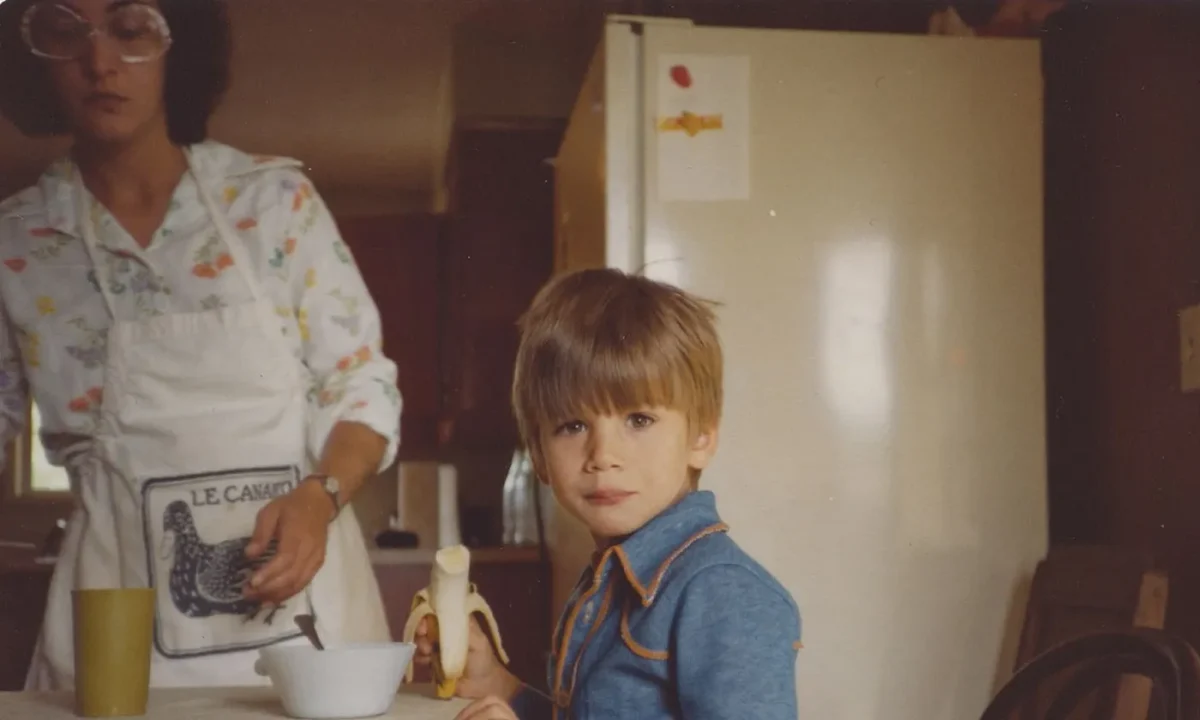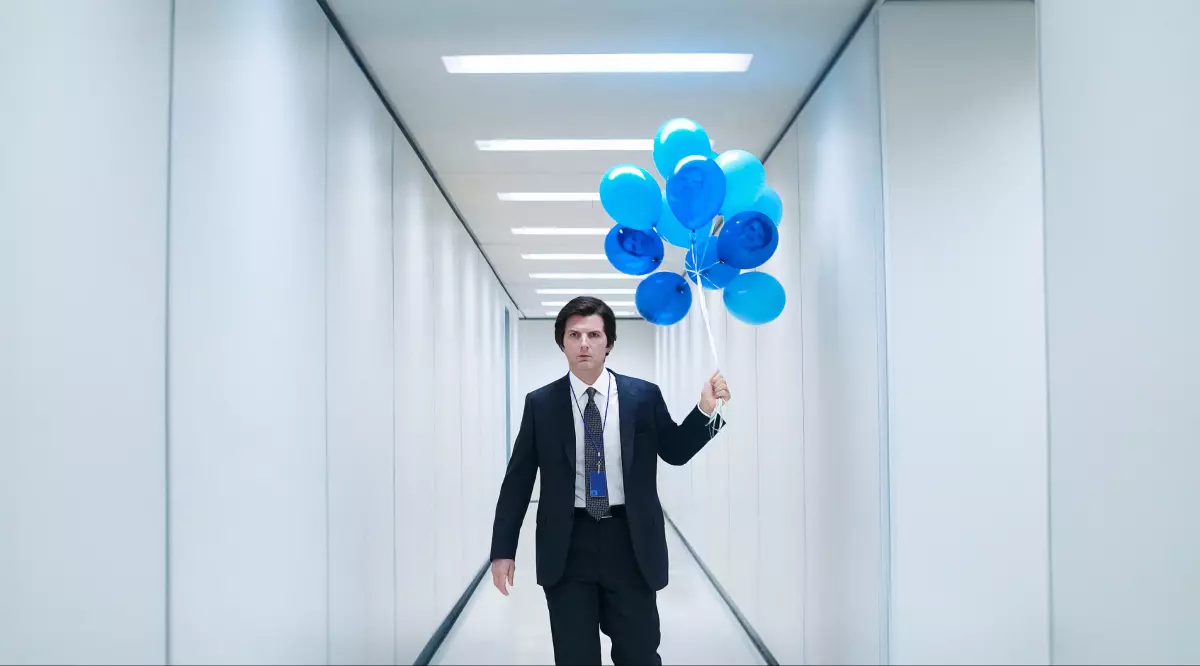If a class were ever taught about Colson Whitehead, the acclaimed author says it would be titled “The Sorrow and the Pain.” That is because writing often feels miserable, Whitehead told a full house at The Sheldon Concert Hall on April 9.
But when the two-time Pulitzer Prize-winning writer comes up with a surprising way to describe a character, imagines a new setting or simply writes an amusing joke, he is reminded of why he loves to write.
“I realized as a 27-year-old that there’s nothing else I could do that would make me complete,” Whitehead said. “So I can sit around in my underwear feeling bad for myself, or write the next book.”
Whitehead received the 2025 St. Louis Literary Award, presented annually by the Saint Louis University Libraries. It joins his illustrious collection of accolades, including the National Book Award, the Carnegie Medal for Fiction and the Anisfield-Wolf Book Award. He is the author of several acclaimed works of fiction and nonfiction, including “The Intuitionist,” “Sag Harbor,” “The Noble Hustle,” “The Nickel Boys,” “Harlem Shuffle” and “The Underground Railroad,” this year’s SLU Campus Read book.
Whitehead joins a list of notable award recipients, including Jamaica Kincaid, Arundhati Roy and Margaret Atwood. St. Louis Literary Award Executive Director Ted Ibur announced at the ceremony that celebrated writer Jhumpa Lahiri will receive the 2026 award next spring.
Ibur said celebrating Whitehead’s creative work is especially important during a time of uncertain funding and support for the arts.
“Creative expressions bring us together, just as good art often does, and it allows us to see one another more clearly and remind us of what we share, even in the face of our differences,” Ibur said. “The work of artists like Colson Whitehead, it’s not just powerful, it’s essential.”
Colson Whitehead spoke with The University News’s Ulaa Kuziez and The Kiln Project’s Ruth Bouman on April 9. The following conversation has been edited for clarity and length.

Ruth Bouman: Saint Louis University is a Jesuit university, and SLU students often deal with the process of discernment, especially as it relates to vocation. What was your journey to being a writer like?
CW: I wanted to write from a very young age, from like fifth or sixth grade. My mom would buy all the big bestsellers, and they would circulate around my sisters’ rooms, and then me and my brother’s room. So Stephen King; I remember reading this very thick Stephen King book when I was like 10. And I love Marvel Comics, X-Men, Fantastic Four, Spider-Man. And it seemed like if you’re a writer, you can just make up these weird, crazy worlds, stories about vampires, robots, killer robots.
Ulaa Kuziez: What kinds of missions or goals do you have as you write?
CW: Well, mission, I guess in a sense of a lofty aim, [is] just not to make it bad. Tell a good story, not let down my ambitions for a project. I’m a flawed person. I’m an artist who’s still trying to get better. So, can my weaknesses as a person and an artist undermine my hopes and dreams for this project? So I try very hard not to make it suck.
UK: What is it about writing between genres so easily, so fluidly, what does that afford you as a writer?
CW: It’s not easy. I mean, I spend a lot of time trying to figure out what I can take from the horror genre in “Zone One.” It is really just having a lot of different tastes. No one just reads crime thrillers, no one just reads romances. And I think the fun part of my job is that if I keep going, I get to write in all these different forms that I personally enjoy. And part of the fun and challenge is figuring out how to make them work for me.
Whitehead’s writing process
RB: And that challenge is very real. Writing is often described in painful terms. How do you move past this point of pain or writer’s block, or however you want to describe that?
CW: Well, you have to experience that in order to get to the other side. So, I’m working on the third book in this trilogy now, and I’m having trouble. I’m distracted by the news and having trouble getting some traction, but I know eventually, one day, I’ll wake up, and it will click, and I’ll power through the last 100 pages. That’s how it always works. I sort of shut off my brain and don’t work at all – and then one day, I’ll be ready to attack the project with vigor and purpose, hopefully. So, if it was easy, it wouldn’t be worth doing. No one else can write it for you. It’s your book. So you have to accept that no one else is going to figure out how the scene works, how the sentence works, what the ending is, except you. So you have to find that drive early on as an artist.
UK: Is there anything that you’ve learned from those moments where you’re stuck, where you might be experiencing some of that pain?
CW: Yes, but typically, I always forget it. And so I’m trying to hold on to: “I will figure it out.” Sometimes, I’ll have to skip ahead. When I was writing “The Underground Railroad,” I knew what the slave catcher Ridgeway had to do. I knew his function in the story, but I didn’t actually know how he walked and talked. So I got to page 75 or whatever, and he was supposed to appear, and I couldn’t figure him out, so I just went to the next chapter, and then six months later, I did some more research about slave catchers in New York, and something clicked. So, at this point, 12 books in I know that I’ll figure it out. I’d have to accept that it may not be very easy.
UK: How then do you practice joy as a writer if you’re experiencing some of those struggles?
CW: It’s not practice as a conscious thing. But I’m delighted when I come up with a new turn of phrase that I couldn’t have done 20 years before, 10 years before, like, I’ve learned how to render this image and with a certain kind of economy I could not have done when I was younger. And I think that brings me joy.if I figure out how Ray Carney gets out of this position of terror and violence that I put him in, and I figure out, there’s actually this plot device that I can use if I figure something out — that’s joy. So it’s not a purposeful ritual where I have to fortify myself against the rigors of the creative process. But yes, in day-to-day work, there are joys.

Beyond Whitehead’s books
UK:Throughout the past couple of months, people on campus have been engaging with your book, reading it, discussing it. Some are creating art or writing work inspired by it. Do you hope people can build on your writing, or is that something that you don’t think about?
CW: I don’t think about it. It’s definitely not up to me. So if I think about it, in the same way I think about audience, people are going to come to it or not come to it. I can’t predict it, so I just try to do the project that’s right for me at that moment, that year, and do it to the best of my ability. Then, of course, it’s delightful when people are inspired. People are inspired to do nothing, they just enjoy it. People are inspired to create their own art, jumping off from it, or write an essay in response to it. But that’s really separate.
RB: Does that thought process also carry over to other interpretations, like the TV show of the “Underground Railroad” and the movie of the “Nickel Boys?”
CW: Well, yeah, it’s beyond me. I didn’t work on either one, so I’m giving permission for these other artists to interpret it. I could be more involved, but I actually have other things to do. I could have worked on “The Underground Railroad,” or I could have written “The Nickel Boys,” so I worked on my book. I think it’s most healthy to step back and let the movie be the movie, or the TV show be the TV show. The book exists. It has readers. The film will exist. It will have its own audience.
Creating characters
RB: Talking a little bit about character creation, you mentioned a little bit of research you did for “The Underground Railroad.” I’m curious how, when you’re writing that historical fiction, what does your research entail?
CW: I had the idea: Wouldn’t it be weird if the Underground Railroad was a real train? I was in my mid-40s. I had not read anything about slavery in 25 years since college, so I had to go back. In terms of making the world sound real to readers at this moment, what’s the language that people used 150 years ago? What were the nouns and verbs that they used that we don’t use now? What’d they wear? So I’m pulling in different things, and definitely with “Underground” and “Nickel Boys” and the Ray Carney stories, first-person accounts are very useful. Getting slang attitudes towards the world, I find that I find a lot of useful vocabulary and attitudes from reading memoirs, slave narratives, newspaper reports that are coming out contemporaneously.
UK: Some of your writing is characterized by telling imaginative stories about the past, but a lot of readers are reading them and connecting them to the present. So it seems like you have your finger on the pulse without actually knowing what’s happening in the future. Do you have any future predictions?
CW: Yeah, I think the powerful will get richer and escape punishment, the innocent and the powerless will continue to suffer, the fight between regressive and progressive ideals will continue, and great stretches of bleak incidents will continue, periodically interrupted by brief moments of safety and peace.
UK: Do you feel a sense of urgency to write about that? Those moments of bleakness and those moments of peace?
CW: No, I’m always picking a project that’s just the best thing for me to do that year, and sometimes it may overlap directly with what’s going on in the world, sometimes just overlapping with my own internal needs. So, the “Nickel Boys” has a character who is very positive and optimistic and a character who’s more cynical. Those are definitely two parts of me, and I started writing it in the early days of the first Trump administration. So, in some ways, the philosophical argument between the two boys is about being an American in 2017, but it’s also obviously about this terrible reform school and these two boys trying to survive. So, there’s part of my philosophical dilemma in there, but you wouldn’t read the book and think, “Oh, this is about the early days of the Trump administration.”

RB: I noticed your characters have such clear voices and personalities, whether it’s the survival instincts and urgency we see in Cora, the mediocrity of Mark Spitz or the save-facing of Carney. I’m curious how you write such a variety of voices with such clarity.
CW: I think if you’re going to set up to do a certain kind of character, you should do it right. That’s your job. It’s like, my sink is clogged, plumber, can you unclog the sink? That’s what he signed up for. Unclog the sink. So if I am gonna have a female character, a teenager who’s an enslaved person trying to escape, my job is to inhabit them as fully and completely as I can. You get better at it the more you do it.
UK: Your characters are embarking on external journeys, oftentimes journeys that are oppressive, but internal journeys as well. So I’m wondering if, as you’re writing, you’re learning things about yourself. Besides what’s happening in the world, are you making sense of something that you’re going through?
CW: Yeah. I mean, “Sag Harbor,” which is a very autobiographical book about growing up in the 80s, is very much about me trying to figure out my childhood and adolescence. There are elements to Mark Spitz’s journey and Ray Carney’s journey that are part of me, and I’m expressing a certain way of being in the world. And then “The Nickel Boys” and “Underground Railroad” are exploring tyranny and brutality and evil. I’m on my own sort of journey of trying to understand the world, and I think I understand a little bit more at the end.
RB: “Zone One” asks a lot of questions about trauma and healing from it, different examples of the survivors and various types of zombies; in the “after” of our pandemic, what kind of zombies do you think we’ve become?
CW: We keep going, lurching forward, half dead. Insulated and cut off from the real world in a certain kind of way. Yeah, I think the pandemic was the last big shock that set us on a different course, and we’re still assimilating what happened.

Politics, teaching and advice for writers
UK: You withdrew from speaking at the University of Massachusetts Amherst last May because the university arrested students and faculty who were protesting. What compelled you to say no in that moment?
CW: Well, I have a daughter who’s in college. I have a nephew who went to the University of Massachusetts. You’re supposed to protect your students. They come first, not kowtowing to a recent vogue in silence. So you don’t call your cops on your students. You serve your students and give them the tools to become better human beings. That’s the job of a college.
UK: To that point, there are some universities now who are also under fire from the current administration. How would you hope university leaders respond?
CW: Well, safety in numbers. Don’t comply in advance. Fight for your values if you have values.
RB: You’ve also taught at universities yourself, so maybe you have kind of an insider knowledge into that. What is or has been fulfilling for you about teaching and connecting with young writers?
CW: I think, in teaching a writing class, a lot of people are taking it as a gut. They’re engineers, like jocks or something, like, “I have to take one English class, I’ll take this.” And so, even if they’ve never heard of me or any of the writers I teach, they always get better across the semester, and they always seem very surprised and delighted by this or that author they’ve never heard of. So even if this is like the last time they’re going to read literary fiction before they become bankers, it’s nice to see them respond to Lorrie Moore, Junot Díaz and Ursula K. Le Guin, and then write their stories which are probably, pretty terrible, the first one and the second ones will look better, and then by the third one, it’s like, “Jimmy the banker actually [laughs] has figured out how to come up with a nice little simile.”
UK: Is there a way that you try to teach students how to build an authentic voice, maybe something that you’ve learned about your own writing voice?
CW: People want to write about characters they know. When they’re younger, they want to write characters that are familiar to them, maybe based on themselves. So I’m always like, “Okay, you’ve written two stories about 18-year-olds from New Jersey, you’re an 18-year-old from New Jersey. I want you to try a 23-year-old from Connecticut.” So, try different genres. Don’t write in the first person if you keep writing in the first person. Maybe mix it up. There’s three and a half months, it’s a laboratory; it’s okay to fail. Try something new. Don’t just try the same kind of character you’ve been doing.
RB: I don’t know if you’re familiar with St. Ignatius or his story, but he was struck by a cannonball in the knee and had to lay in bed for months to rest. He read a lot, and he read the Bible and the history of the saints, and he was like, “Oh my gosh, I’m changing my life.” Was there a moment when you were like, “Okay, I can do this for a job, too, not just as something that I feel passionate about.” What was that moment for you, if you had one?
CW: I wrote my first novel and no one wanted to publish it. I got 25 rejections, my agent dumped me. And, at that moment, even though no one likes your work, you have to figure out, am I gonna keep doing this, or am I gonna do something else? So I think I became a writer not because I wanted, as a kid, to write “X-Men,” but when I realized as a 27-year-old that there’s nothing else I could do that would make me complete. I can sit around in my underwear feeling bad for myself or start the next book, and the next book might not be published, but I’ll be a better writer for having written two books. So, I guess the cannonball moment is dusting myself off from this failure and realizing that, well, let’s start again.
UK: You said writing makes you complete. What do you mean by that?
CW: Despite me talking about how terrible it is, it actually brings me joy and sets me right.
An extended version of this interview can be found on The Kiln Project’s website.




![Two-time Pulitzer Prize winning novelist Colson Whitehead discusses his novels and writing process at a Craft Talk discussion with English and creative writing assistant professor Ron Austin in Saint Louis University’s Wool Ballroom on April 10, 2025. Whitehead received the 2025 St. Louis Literary Award on April 9. “I always take [awards] as an encouragement to keep doing what I’m doing,” Whitehead said.](https://unewsonline.com/wp-content/uploads/2025/04/4_10ColsonWhitehead_JudeThomas0282-3-1200x800.jpg)





Preston Cole • Apr 15, 2025 at 11:20 am
I just completed author Colson Whitehead’s book Crook Manifesto. The irony in the trajectory, my wife and myself were at some Goodwill Store. I detoured as she continued her routine accessing goods and prices. I strolled to the used book shelf where I found Harlem, by Colson Whitehead. I pick it up for less the 2.00.
Some time later I go to the public library to return a book. Mind you, I didn’t even start Harlem. As a result to my curiousity, finding two books in the same week Harlem and Crook Manifestor of same author Colson Whitehead.
Crook Manifesto I read out this ironic curiosity. It was hard at first. Couldn’t find the flow but as I continued I find it resonant.